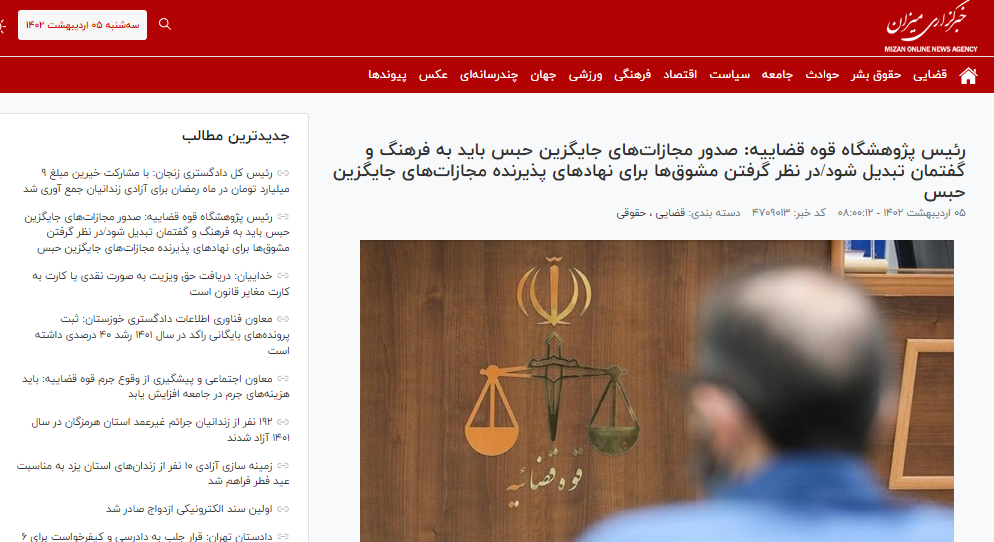The head of the Judiciary Research Institute said: alternative punishments of imprisonment should become a discourse in the society and if this culture takes place that what services can a person provide to the society with alternative punishment and what help will be given to that person and his family considering the economic situation, the desire for this will be more.
Hojjatul-Islam Mehdi Hadi said about the order of the Head of the Judiciary on the issueing alternative punishments of imprisonment: the actions of the legal assistant and the JRI to measure and evaluate the issue of alternative punishments of imprisonment in various dimensions and all-round the idea of using the financial and intellectual capacities of those sentenced to imprisonment in order to provide social services and public benefit is defined as a national project in JRI and its plan is ready and approved.
The head of the JRI added: The institution of alternative imprisonment is a very progressive institution and it is recommended that judicial colleagues use this institution.
Explaining this issue, he said: One of the problems of issuing alternatives to imprisonment is due to the large number of cases, because in the issuance of a sentence, a monetary penalty is issued more easily and the case is closed and the problem is solved, but when you issue an alternative punishment to imprisonment, the judicial colleague actually takes care of an open case is needed, so the judicial colleague, when he sees that way is more convenient and takes less time, does the same thing instead of jail.
He pointed to another challenge in the field of issuing alternatives to imprisonment and added: In the discussion of institutions that accept alternative punishments, there is no basis for those institutions that provide public services to accept that a person can serve there instead of imprisonment. In fact, many institutions in the country do not accept this issue, or at least there are no necessary facilities to accept these people, therefore the executives and staff of the institution where the convicted person serves must have the necessary preparation to accept and attend the convicted person.
The head of the Judiciary Research Institute pointed to one of the solutions in this field and said: incentives, such as tax exemptions and some privileges are needed so that these institutions accept people who have replaced service instead of imprisonment.
Dr. Hadi said: Therefore, one of the main reasons for the failure in the discussion of alternative punishments of imprisonment is that the appropriate platform for the accepted institution has not been provided, but beyond the alternative punishments, an important issue that has started in JRI is alternative punishments and not only alternative to imprisonment.

 فارسی
فارسی Français
Français

